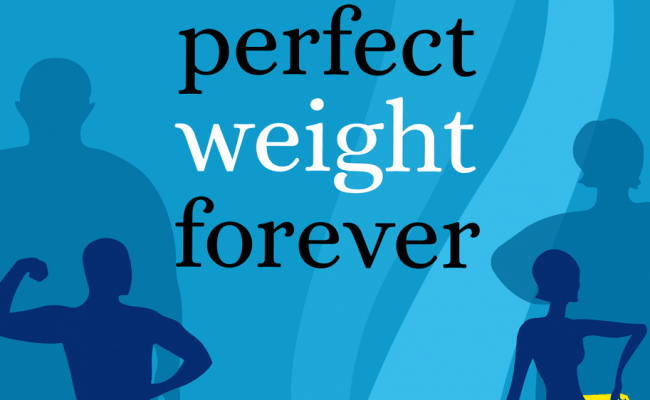
Yo-yo dieting is considered by many as something unhealthy and a signal that you will never be able to lose weight. According to research, yo-yo dieting is not always bad but that does not mean it should not be avoided either.
Currently, a large portion of the population is overweight; and many of them are constantly trying to shed those extra pounds. There are new fad diets coming out that promise great results quickly, often by significantly reducing the amount of calories that you will consume in a day.
While some people will choose to lose weight by exercising and following a well balanced diet for gradual weight loss, many people want to try the latest diet. Maybe they know someone who lost weight on it, or maybe they were mesmerized by it when it was featured on their favorite talk show.
There are many reasons why people will try a new diet, but with so many of them out there, it is hard to choose just one when they all promise such great results.
Many people will start one diet, and then stop. Soon after that, they will start another diet, and then stop. This cycle goes on and on. They might lose some weight, and may gain it back when they go off the diet; but they never really lose the weight and keep it off.
This is called yo-yo dieting. It is generally looked at as being bad because when you lose weight, you should exercise and change your eating habits. It should be a lifestyle change. But, is yo-yo dieting ever good?
Weight cycling can result in weight gain
A study, published in the International Journal of Obesity, looked at the association between weight cycling with weight change, weight control practices and bulimic behaviors. The subjects included 2476 young and middle-aged women, some of which were severe cyclers and mild cyclers.
The weights were monitored within an 8 year period, and compared with weights of women of the same age and body mass index (BMI) who did not yo-yo diet. The study found that weight cycling resulted in greater weight gain, less physical activity and greater occurrence of binge eating.
Often, people will go on a diet – most of which are very low in calories – and they will either go on it for the specified period of time, or until they get sick of it. Then, they will either go back to eating the way they were prior to starting the diet, or as stated above, they will binge eat after having deprived themselves the whole time that they were on the diet.
The increase in calories will not only cause them to gain weight, but often results in gaining back the weight that was lost, plus some additional pounds. After gaining the weight, they will decide to go on the next diet, and the cycle continues.
Yo-yo diets don’t have a bad effect on your metabolism
Another study, published in the American Journal of Clinical Nutrition, looked at the relationship of dieting history to resting metabolic rate, body composition and weight loss. The subjects included 50 obese women who had gone on several diets which resulted in weight loss.
The study concluded that weight cycling did not cause the women to lower their resting metabolic rate or cause the women to have slower weight loss.
Based on this study, yo-yo dieting does not affect your ability to lose weight when you aren’t on a diet, and it will not slow your metabolism down. This does not mean that it is the right way to lose weight, though. It is still much better to follow a healthy diet and start exercising daily. Exercising and building muscle can actually increase your metabolism, which will result in a greater number of calories burned.
It is not too late to stop yo-yo dieting
So, obviously, it is not recommended to yo-yo diet, but what if you have been doing it for your whole life?
A third study, published in Metabolism – Clinical and Experimental, looked at the impact of weight change on physiological outcomes. The subjects included 439 overweight, inactive, postmenopausal women who have a lifetime history of weight cycling.
The women were categorized as none, moderate, or severe cyclers based on how much weight they lost on their diets. They were each given a 12 month diet and/or exercise intervention.
The study found that the moderate and severe cyclers weighed more and their metabolic profiles weren’t as favorable as the non-cyclers. The study concluded that an individual could still be successful in making a weight change even if they have a history of weight cycling.
Based on this study, even if you have been yo-yo dieting your whole life, that does not mean that it is too late to start a healthy weight loss plan. The diet cycling may have caused you to gain more weight overall than you have lost, but you still can successfully lose weight the healthy way.
So what should you do instead?
So, based on the research, yo-yo dieting can cause you to binge eat once the diet is over, this is exactly what you are trying not to do by dieting in the first place. The binge eating can cause you to gain weight, especially if you aren’t exercising. Although the dieting itself does not cause you to lower your metabolism, you are likely to gain weight because of the binge eating without exercising.
This not only affects your body and your health, but it can have a negative effect on the way that you feel about yourself. It will affect your self esteem, and set you back even farther than you were before you started the diet, or diets.
So, it is best to figure out how many calories you should be eating in order to lose weight and start an exercise program to go along with the healthy eating.
References used in this article











Matt Green says
Hey Kelly,
I believe dieting and living a healthy lifestyle is hard work. You have to stick with it and keep improving. That’s the only way someone will succeed in there diet. A lot of people don’t realize loosing weight for the long term is not just a 4 week diet, it is a lifestyle change.